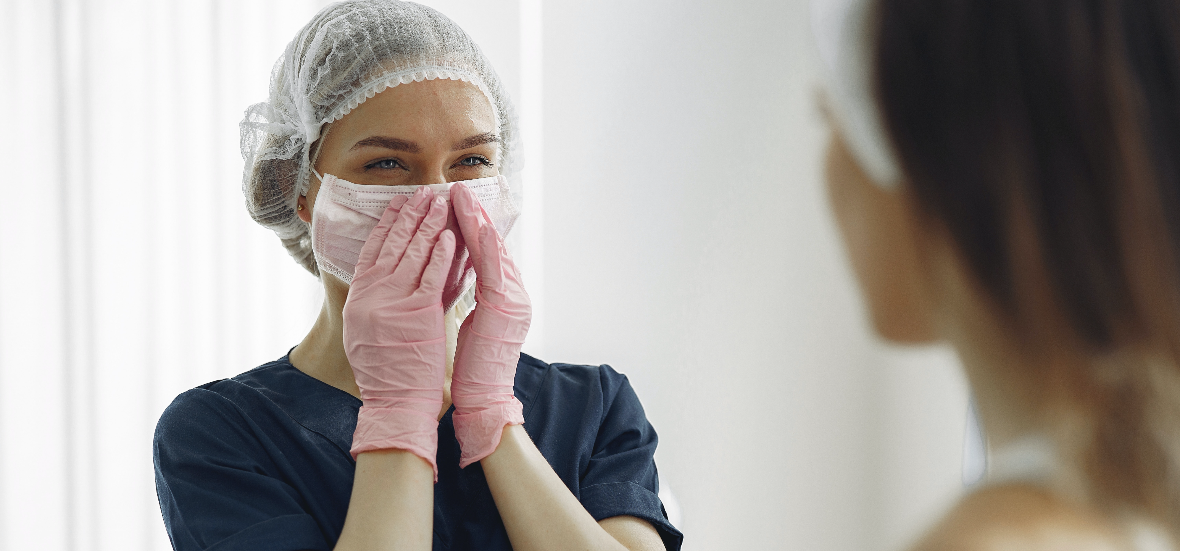
Michele Faehnle offers a reminder to include essential medical appointments in your self-care routine.
As mothers, we can often times spend so much time on the health of our kids, we can neglect to take care of ourselves and keep up with routine appointments. I have been very guilty of this over the past 15 years, only visiting my OB/GYN and a having a handful of sick visits to my family doctor. Last year I decided to start taking better care of my health, and when I called my doctor to schedule a physical, I found out that he had retired: five years prior! I could not believe that it had been that long since I had gone to the doctor. Since that time I have made it a priority to schedule these five appointments each year:
- Annual Physical. During this visit, your doctor will discuss your overall health, check your vitals, do a complete exam including assessing your heart, lungs, abdomen, skin, head & neck as well as order some simple lab test such as a complete blood count, urinalysis, chemistry and cholesterol level. This is a great time to discuss any concerns you have with your health and also builds a relationship with your doctor. It also allows for continuity of care if you become ill, as your doctor will have a baseline assessment to compare lab values and vital signs.
- Annual Visit to OB/GYN. A visit to your OB/GYN for a women’s health visit is also very important. They will do a breast assessment, pelvic exam and discuss your general health. A pap smear is recommended every 3-5 years and done upon your doctor’s recommendation. (Your family doctor can also incorporate this into your physical if you would like to do these all at once).
- Mammogram. Women age 40 and older should talk to their doctor about how frequently they should get a mammogram. Typically this is done annually or every 2 years. Next to skin cancer, breast cancer is the most common cancer in women. According to the American Cancer Society the average risk of a woman in the United States developing breast cancer sometime in her life is about 13%. Early detection is key in successful treatment of breast cancer, so a mammogram is a very important screening tool.
- Dermatology Visit. As mentioned above, skin cancer is the most common cancer, affecting one out of every five Americans according to the American Academy of Dermatology. Before your appointment, take a thorough look at your skin for any new blemishes, changes to moles etc. and have them evaluated. Screening for skin cancer is recommended to begin in your 20’s and 30’s; earlier if you have a family history of skin cancer or spend a lot of time in the sun. Most skin cancers can be treated successfully if detected early and before they spread.
- Annual Eye Exam. Since I do not wear glasses, getting an annual eye exam has not been a priority for me. A few years ago I started seeing a few “floaters” and was having some eye twitching and decided it was time to go back to the eye doctor. When I arrived at my appointment, the doctor asked ho long it had been since I last had my eyes checked, and I realized it had been 20 years! Getting an annual eye exam is an important part of healthy vision and can detect glaucoma, diabetic retinopathy, and macular degeneration (especially if you are over the age of 45). Regular eye exams can lead to early detection and treatment of diseases in their early stages, before they become severe or difficult to manage.
Taking care of our bodies glorifies God, and I encourage you to make these appointments this year if you have not already. Regular doctor visits and screenings (don’t forget your dental visits every six months) can help you live a longer, healthier life.
Copyright 2020 Michele Faehnle
Image: Gustavo Fring (2020), Pexels
About the Author

Michele Faehnle
Michele Faehnle is a wife, mother of 4 and a school nurse. In her free time she enjoys volunteering for the church and is the co-chair of the Columbus Catholic Women’s Conference. She is also the co-author of The Friendship Project, Divine Mercy For Moms, Our Friend Faustina and Pray Fully; Simple Steps to Becoming a Woman of Prayer. Read more of her work at InspireTheFaith.com.


.png?width=1806&height=731&name=CatholicMom_hcfm_logo1_pos_871c_2728c%20(002).png)
Comments